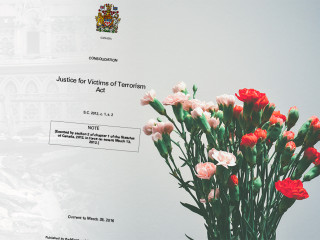Court Has No Interest in Awarding Interest on Litigation Loans
The court in Davies v. Clarington (Municipality) analyzed whether interest on litigation loans should be a payable disbursement and also outlined several key principles to the assessment of costs.
Overview
This was a class action under the Class Proceedings Act. Liability had been determined in an earlier trial. As a result of that liability trial, all members of the class, but for two, entered into a settlement agreement. Mr. Zuber was one of the two class members who did not settle, and he continued his claim through to trial.
The defendants made three offers to settle: (a) $150,000 plus costs; and then, (b) $500,000 plus costs of $250,000; and later, (c) a rule 49 offer of $500,000 plus costs to be agreed upon or assessed. The plaintiff made offers to settle for $35 million and later $26.2 million plus costs. At trial, the plaintiff was awarded $50,000 plus interest, which was less than the defendants’ first offer to settle of $150,000.
During the litigation, the plaintiff was advanced 6 litigation loans. The loans totaled $247,210.18. But with interest, the loans were over $3.15 million. The defendants were not aware of the loans for more than 6 years. In fact, the existence of them was unknown to the defendants prior to their first two offers to settle.
General Costs Principles
The court outlined the key principles when it comes to assessing costs. For example, the court has discretion to award costs pursuant to s. 131 of the Courts of Justice Act. The general factors to consider are outlined in rule 57.01 of the Rules of Civil Procedure.
The overriding principle in any assessment of costs is that they must be fair and reasonable. In determining a fair and reasonable amount, the court should avoid inconsistency with comparable awards in other cases and should seek to balance the concept of indemnity with the fundamental objective of access to justice.
The tariffs in the Rules of Civil Procedure are relevant to assessing disbursements. Tariff A2 permits a judge to award disbursements that were reasonably necessary for the conduct of the proceeding. However, the amount must also be reasonable.
Because this was a class action, the court was required to consider s. 31 of the Class Proceedings Act. That section requires the court to give special weight to whether the proceeding was a test case, raised a novel point of law or involved a matter of public interest. The court considered this section but found it did not apply.
Since offers to settle were made, the court was required to consider rule 49. When a defendant’s offer meets the requirements of rule 49 and the plaintiff obtains a judgment that is less than or equal to the offer, the plaintiff is entitled to partial indemnity costs up to the date of the offer and the defendant is entitled partial indemnity costs thereafter, unless the court orders otherwise. However, under rule 49.13, the court may take into account any offers to settle, including ones that do not comply with rule 49.
The Litigation Loan
Not surprisingly, the plaintiff argued that he was entitled to be paid the interest on his litigation loans as a disbursement. It was also argued that the accruing interest was critical to assessing the offers to settle. However, this argument was rejected by the court for the following reasons:
- There was no evidence that the plaintiff used the loan to fund disbursements. In fact, there was evidence to suggest that a significant portion of the loans was used for other purposes.
- While the plaintiff relied upon a New Brunswick Court of Appeal decision called Leblanc for the proposition that interest on litigation loans is a payable disbursement, the plaintiff in that case did not have the means to finance the action and was charged only 2% interest. Therefore, the decision was distinguishable. There was no evidence that Mr. Zuber lacked the means to finance his action and he was charged 18% to almost 29% interest.
- The court relied upon the Ontario decision of Warsh v. Warsh where Justice Lauwers declined to award interest on a litigation loan as a disbursement.
- The plaintiff did not obtain court approval of the third-party funding. Plaintiffs in class actions are required to do so pursuant to Houle v. St. Jude Medical Inc. Relatedly, the defendants were not aware of the loans for over 6 years, which the court found to be unfair.
- There was a more cost-effective alternative that the Plaintiff did not consider. Under the Law Society Act, a plaintiff in a class proceeding may apply for financial support from a Fund to cover disbursements. Further, if a plaintiff’s application is successful, a defendant may apply for payment from the Fund to cover its costs. Also, a defendant who has a right to apply for such payment may not recover costs from the plaintiff. Unfortunately, in this case, Mr. Zuber did not apply to the Fund until after the Reasons for Judgment and his application was accordingly unsuccessful. He should have applied earlier.
The Operation of Rule 49
The defendants first two offers to settle were not rule 49 offers. Only the last one was. However, the court relied upon rule 49.13 and took those earlier offers into account in its assessment of costs. As a result, the plaintiff was only awarded his partial indemnity costs up to the defendant’s first offer. The defendant was awarded partial indemnity costs thereafter.
The court held that if those two earlier offers were ignored, it would be rewarding the plaintiff for rejecting them in order to pursue a hopeless damages claim. That behaviour should not be sanctioned. Litigants must be encouraged to settle their cases reasonably as court time is precious.
Substantial vs. Partial Indemnity
Apart from the operation of rule 49, the court clarified that substantial indemnity costs may only be awarded where there has been reprehensible or egregious behaviour, relying upon the Court of Appeal case of Davies v. Clarington (Municipality).
The court declined to award substantial indemnity costs in this case. Though Mr. Zuber failed to retain basic documents, destroyed documents that were apparently in support of his income loss claim, colluded with witnesses, and violated witness exclusion orders by speaking to witnesses before they testified, the court found that this conduct did not reach the level that required punishment by the court.
Quantum of Costs
Mr. Zuber took issue with the quantum of the defendants’ collective costs. There was more than one defendant, and each defendant had his own lawyer. The court reduced costs recognizing there was some inevitable duplication of work. However, the plaintiff’s costs were far greater than the defendant’s collective costs. Consequently, the court found that the plaintiff could hardly complain about the overall quantum being sought by his opponents.
Overall Result
In the end, the defendants were awarded costs of $2,562,000 less the plaintiff’s costs award of $250,000.
Lessons Learned
I think this case highlights the following important points counsel should consider during litigation and when arguing about costs:
- It is going to be very challenging to claim interest on litigation loans as a payable disbursement, particularly if the interest rate is very high.
- Plaintiffs in a class actions must have third-party funding approved by the court first.
- If your client needs a litigation loan, advise counsel well ahead of time. It may be wise to first ask the defendant for an early payment that will later be credited to any Judgement or settlement.
- Make sure litigation loans are used for the litigation and not personal purposes.
- If the lawsuit is a class action, have your client apply to the Fund pursuant to s. 59 of the Law Society Act. Your clients may receive needed financial support and be immune from a costs order as a result.
- Apart from rule 49, substantial indemnity may only be awarded if a party engages in reprehensible behaviour. Based on this case, parties have a very high bar in proving egregious conduct worthy of punishment.
- If faced with a costs hearing after an unsuccessful trial, consider preparing your own bill of costs to demonstrate that what the defendants are claiming is not fair by comparison.















